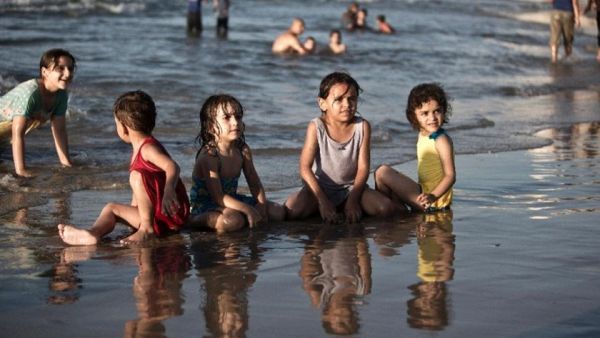- Contaminated water is the biggest contributor to illnesses among Gazan infants.
- The U.S. administration is committed to resolving the issue of wastewater along with Israel and the Palestinian Authority.
- The U.S. president's special representative for international negotiations Jason Greenblatt hopes this project will pave the way for an Israeli-Palestinian peace agreement.
- Greenblatt said that "Hamas rules by the fist, instead of by improving the lives of the people it purports to govern" in Gaza.
The U.S. government will join Israel and the Palestinian Authority in an effort to "transform" how wastewater is treated and reused in the West Bank and Gaza, a senior Trump administration official said on Monday.
Speaking at a U.N. committee hearing, Jason Greenblatt, the president's special representative for international negotiations, spoke of the "devastating" effects that dirty water has on both peoples.
"Contaminated water is the single largest cause of illness and disease among infants in Gaza — think about that for a moment," Greenblatt said. "Parents in Gaza cannot even give their children a drink of water without exposing them to significant risks."
As a result, Greenblatt said the administration was committing itself to resolving the issue, which has had the rare effect of unifying the two sides.
"I am pleased to announce that the United States will join them in this endeavor by working to advance a plan that transforms the wastewater treatment and reuse sector in the West Bank and Gaza," Greenblatt told the Ad Hoc Liaison Committee. "As part of this effort, we will work with the parties and the donor community — and again, we welcome active engagement from our partners — to develop a comprehensive strategy for wastewater treatment and reuse in the West Bank and Gaza."
Greenblatt brought to the U.N. a message of pragmatism, tempering expectations that any major breakthroughs were on the horizon in his greater effort to forge a comprehensive Israeli-Palestinian peace agreement. But he said the time for slow talk on the humanitarian situation in Gaza had come to an end.
"For too long, Hamas has exploited the people of Gaza as hostages and shields, bullying them into submission. Hamas rules by the fist, instead of by improving the lives of the people it purports to govern," he told the gathering.
- Hamas Accepts PA Reconciliation Demands to Dissolve Gaza Administration, Hold Elections
- ‘We Will Return’: Nakba Day in the Words of Palestinians
"Hamas continues to divert money belonging to the Palestinians of Gaza — including funds provided by international donors — and uses these funds to build terror tunnels, missiles and for other nefarious uses. This has a huge impact on Gaza’s development, as major electricity and water projects which could radically transform the humanitarian situation in Gaza are on hold because Hamas refuses to pay the Palestinian Authority for the services it already provides."
His speech came on the heels of a bilateral meeting between Prime Minister Benjamin Netanyahu and U.S. President Donald Trump, on the sidelines of the U.N. General Assembly. Their discussion focused on shared policy challenges posed by Iran and Syria, and touched briefly on the Palestinian question, one senior White House official said.
"Achieving peace between the Israelis and Palestinians remains one of the president’s highest priorities, but the United Nations meetings are primarily focusing on other issues," the official said, characterizing Trump's meetings with Netanyahu and Abbas as "check-in" opportunities. "Our peace delegation recently concluded a very productive trip to the region, and those peace conversations are continuing at a steady pace, mostly separate from the U.N. meetings."
Both leaders will address the U.N. body on Tuesday.
This article has been adapted from its original source.








